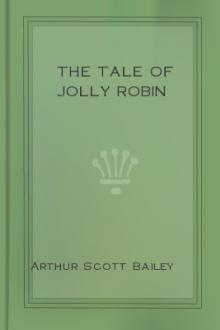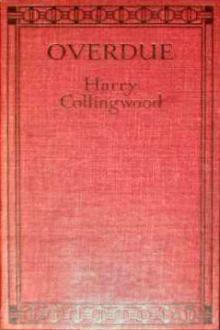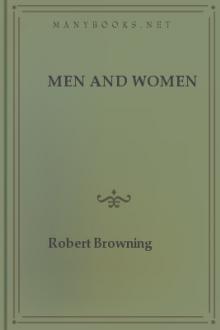Genre Fiction. Page - 195

I am quite delighted."
So Jolly Robin laughed happily. And old Mr. Crow remarked that it was a fair laugh, though not so loud as he would have liked.
"I'll do better next time," Jolly assured him.
"Good!" said Mr. Crow. "And now, since I've finished my breakfast, we'll go over to the woods and see what's going on there this morning."
The first person they saw in the woods was Peter Mink. He was fishing for trout in Broad Brook. And old Mr. Crow, as soon as he spied him, sang out:
"How many of Farmer Green's fish have you eaten this morning?"
Peter Mink was just crawling out of the water, with a fish in his mouth. When he heard Mr. Crow calling to him, he dropped his trout upon a rock and looked up quickly.
"How much of Farmer Green's corn have you stolen for your breakfast?" he cried.
At that Jolly Robin began to laugh. But Mr. Crow stopped him quickly.
"Don't laugh!" the old gentleman squawked. "There's nothing to laugh at, so far as I

p>"Lost your captain and both mates! How in the name of Fortune did that happen?"
"Well, sir, you see it was this way," was the reply. "When we'd been out about a week--we're from Liverpool, bound to Sydney, New South Wales, with a general cargo and two hundred emigrants--ninety-seven days out--when we'd been out about a week, or thereabouts--I ain't certain to a day or two, but it's all wrote down in the log--Cap'n Somers were found dead in his bunk by the steward what took him in a cup o' coffee every mornin' at six bells; and Mr Townsend--that were our chief mate-- he took command o' the ship. Then nothin' partic'lar happened until we was well this side o' the Line, when one day, when all hands of us was shortenin' sail to a heavy squall as had bust upon us, Jim Tarbutt, a hordinary seaman, comin' down off the main tops'l yard by way o' the backstays, lets go his hold and drops slap on top o' Mr Townsend, what happened to be standin' underneath, and, instead of hurtin' of hisself, broke t'other man'

ty wheresoever in life itchooses to turn the light of its gaze. So, also, in "Andrea delSarto," the easy cleverness of the unaspiring craftsman is notembodied apart from the abject relationship which made his very soula bond- slave to the gross mandates of "the Cousin's whistle." Yetin all three poems the biographic and historic conditions
contributing toward the individualizing of each artist are sounobtrusively epitomized and vitally blended, that, while scarcelyany item of specific study of the art and artists of the Renaissancewould be out of place in illustrating the essential truth of theportraiture and assisting in the better appreciation of the poem,there is no detail of the workmanship which does not fall into thebackground as a mere accessory to the dominant figure through whoserelationship to his art his station in the past is made clear.
This sort of dramatic synthesis of a salient, historical epoch isagain strikingly disclosed in the following poem of the Renaissanceperiod

light, from the Record and State PaperOffice, and historical societies, will throw much light on thesubject]; and an abundant harvest offers in examining them, bywhich to make an amusing book, illustrative of our provincialwords and ancient manners. I think we cannot avoid arriving at theconclusion, that the Anglo-Saxon dialect, of which I conceive theWestern dialect to be a striking portion, has been graduallygiving way to our polished idiom; and is considered a barbarism,and yet many of the sounds of that dialect are found inHolland and Germany, as a part of the living language of thesecountries. I am contented with having thus far elucidated thelanguage of my native county. I have omitted several words, whichI supposed provincial, and which are frequent to the west, as theyare found in the modern dictionaries, still I have allowed a few,which are in Richardson's Johnson.
Thee is used for the nominative _thou_; which latterword is seldom used, diphthong sounds used in thi

e said as he stepped in.
He was a large-boned, long-limbed man with a stoop in his broad shoulders. His hair was rough as a crow's nest, grayish and tangled, but his face was of a deep yet clear pink, seemingly out of keeping with his coarse, rugged features and bushy eyebrows.
Erik Grubbe invited him to a seat and asked about his haymaking. The conversation dwelt on the chief labors of the farm at that season and died away in a sigh over the poor harvest of last year. Meanwhile the pastor was casting sidelong glances at the mug and finally said: "Your honor is always temperate--keeping to the natural drinks. No doubt they are the healthiest. New milk is a blessed gift of heaven, good both for a weak stomach and a sore chest."
"Indeed the gifts of God are all good, whether they come from the udder or the tap. But you must taste a keg of genuine mum that we brought home from Viborg the other day. She's both good and German, though I can't see that the customs have put their mark on her."

s be'n ter Noo Orleens, an' Atlanty, an'Charleston, an' Richmon'; an' w'en I 'd be'n all ober de Souf I come terde Norf. Fer I knows I 'll fin' 'im some er dese days," she addedsoftly, "er he 'll fin' me, an' den we 'll bofe be as happy in freedomas we wuz in de ole days befo' de wah." A smile stole over her witheredcountenance as she paused a moment, and her bright eyes softened into afar-away look.
This was the substance of the old woman's story. She had wandered alittle here and there. Mr. Ryder was looking at her curiously when shefinished.
"How have you lived all these years?" he asked.
"Cookin', suh. I 's a good cook. Does you know anybody w'at needs a goodcook, suh? I 's stoppin' wid a cullud fam'ly roun' de corner yonder 'telI kin git a place."
"Do you really expect to find your husband? He may be dead long ago."
She shook her head emphatically. "Oh no, he ain' dead. De signs an' detokens tells me. I dremp three nights runnin' on'y dis las' week dat Ifoun' him."
"He may h

nd Nan were the oldertwins, and Flossie and Freddie the younger. You are first told aboutthem in the book called "The Bobbsey Twins," and in that you learn thatthe Bobbsey family, consisting of Mr. and Mrs. Richard Bobbsey and theirfour children, lived in Lakeport, an eastern city on the shore of LakeMetoka, where Mr. Bobbsey had a lumber business.
In the family, though not exactly members of it, were Dinah, the jolly,fat, colored cook, and Sam Johnson, her husband. Then we must not forgetSnap, the dog, and Snoop, the big cat.
Following the first book are a number of volumes telling of theadventures of the Bobbsey twins. They went to the country to visit UncleDaniel, and at the seashore they had fun at the home of Uncle William.After that the Bobbseys enjoyed a trip in a houseboat, they journeyedto a great city, camped on Blueberry Island, saw the sights ofWashington and even sailed to sea.
As if this was not enough Mr. and Mrs. Bobbsey took their children on awestern trip among the cowb

t of the "L" below them. It was perhaps six miles across; and all over the comparatively smooth surface jutted dark projections. Viewed through the glasses, they had a regular, uniform appearance.
"By Jove!" ejaculated the doctor, almost in awe. He leaned forward and scrubbed the dead-light for the tenth time. All four men strained their eyes to see.
It was the architect who broke the silence which followed. The other three were content to let the thrill of the thing have its way with them. Such a feeling had little weight with the expert in archeology.
"Well," he declared jubilantly in his boyish voice, "either I eat my hat or that's a genuine, bona fide city!"
As swiftly as an elevator drops, and as safely, the cube shot straight downward. Every second the landscape narrowed and shrunk, leaving the remaining details larger, clearer, sharper. Bit by bit the amazing thing below them resolved itself into a real metropolis.
Within five minutes they were less than a mile above

ity with Song-jin was destined to serve him as wife or mistress. Song-jin bore the name of his hermit father, Yang, and the name given him at birth.
Master Yang, as we shall now know him, was a child of such beauty and a youth of such wisdom that the governor of his county called him the "Marvellous Lad" and offered to recommend him to the Court. His physical strength, learning and ability in the Classics and composition, his marvellous knowledge of astronomy and geomancy, his military prowess--he was a wonder of skill in tossing the spear and fencing with the short sword--were only equalled by his filial piety. He "deftly solved the mysteries of life as one would split the bamboo."
While still in his teens Yang expressed his desire to go forth to compete at the Government Examination so that he should "for ever establish the reputation and honour" of his family. His faithful mother stifled her fears for the long journey, for she saw that his "spirit was awake and anxious." By selling her few treasu

our eighth landing, all that passed. For R-14 was old again, older than any of the others.
And then, on October sixteenth, Mason opened the door of the locked cabin. It happened quite by accident. One of the arelium-thaxide conduits broke in the Marie Galante's central passageway, and the resulting explosion grounded the central feed line of the instrument equipment. In a trice the passageway was a sheet of flame, rapidly filling with smoke from burning insulation.
Norris, of course, was in the bridge cuddy with locked doors between us and him, and now with the wiring burned through there was no way of signalling him he was wanted for an emergency. In his absence Mason took command.
That passageway ran the full length of the ship. Midway down it was the door leading to the women's lounge. The explosion had jammed that door shut, and smoke was pouring forth from under the sill. All at once one of the women rushed forward to announce hysterically that Mason's wife, Estell